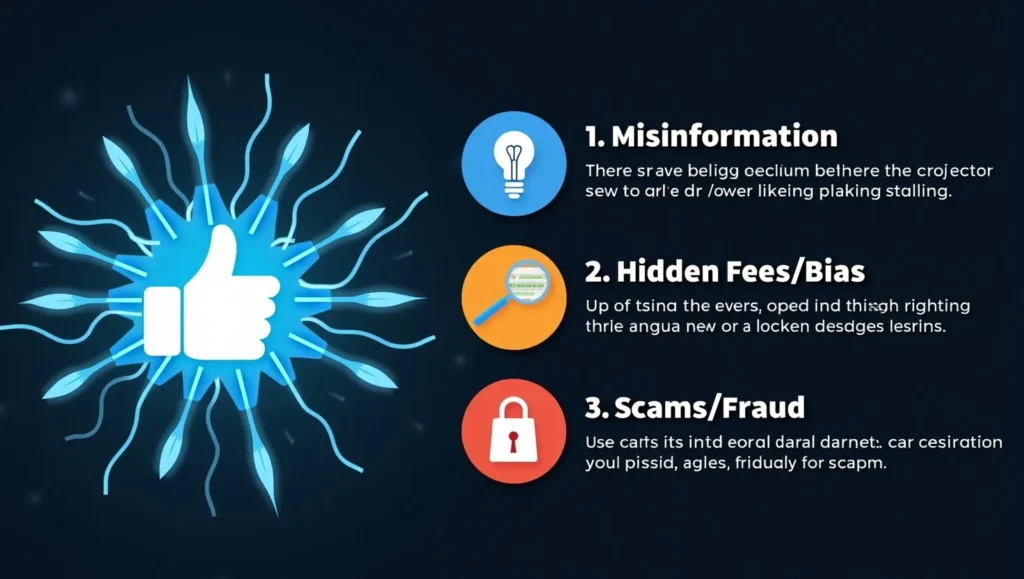Beware the “Finfluencer” Trap: Navigating Financial Advice on Social Media in 2025 (USA, UK, Canada)
Introduction: In 2025, social media is a ubiquitous source of information, and increasingly, financial advice. The rise of “finfluencers” (financial influencers) promises quick tips for wealth, investing, and budgeting, often reaching millions across the USA, UK, and Canada. While some offer valuable insights, the unregulated nature of this space poses a significant risk: financial misinformation and outright scams. This article will expose the “finfluencer trap,” helping you distinguish reliable financial advice from potentially damaging viral trends, ensuring you protect your money and make informed decisions.
The Allure of the “Finfluencer”: Why They’re So Popular
This section explores the appeal and reach of financial influencers.
Accessible & Relatable Advice
- Break Down Complexity: Finfluencers often simplify complex financial topics.
- Personal Connection: They build a relatable persona, often sharing personal success stories.
- Engagement: Interactive formats (reels, TikToks, live Q&As) make learning about finance seemingly fun.
The Promise of Quick Riches or Easy Solutions
- Viral Content: Focus on simplified strategies that promise rapid returns or effortless savings.
- Large Following: High follower counts lend an air of authority, regardless of actual qualifications.
The “Finfluencer” Trap: Risks of Unvetted Financial Advice
This section will detail the significant dangers associated with unqualified or misleading advice.
1. Misinformation and Unsound Strategies
- Lack of Qualifications: Many finfluencers lack formal financial training, licenses, or fiduciary duties.
- One-Size-Fits-All: Generic advice doesn’t account for individual financial situations, risk tolerance, or goals.
- Outdated/Inaccurate Info: Advice can be based on old data or simply incorrect interpretations.
2. Undisclosed Conflicts of Interest
- Sponsored Content: Finfluencers may promote products/services they are paid for, without clear disclosure.
- Affiliate Marketing: Earning commissions from sign-ups for certain investment platforms or apps.
- “Pump and Dump” Schemes: Promoting speculative assets they already own, then selling after the price rises due to their influence.
3. Regulatory Blind Spots
- Unregulated Space: Financial authorities in USA, UK, and Canada are still catching up to regulate online financial advice.
- Difficulty in Enforcement: Hard to pursue action against individuals operating across borders without licenses.

How to Get Reliable Financial Advice in 2025
Protect your money by seeking credible and personalized guidance.
1. Look for Credentials and Licenses
- Action: Verify if the person is a Certified Financial Planner (CFP), Financial Advisor (FA), Chartered Financial Analyst (CFA), or holds relevant licenses in your region (USA, UK, Canada).
- Resources: Use official regulatory bodies’ websites to check credentials.
2. Prioritize Fiduciary Duty
- Explanation: A fiduciary is legally obligated to act in your best financial interest, not just their own.
- Action: Ask if an advisor operates under a fiduciary standard.
3. Understand Their Compensation Model
- Fee-Only vs. Commission-Based: Know how they get paid. Fee-only advisors generally avoid conflicts of interest.
4. Cross-Reference Information
- Action: Don’t rely on a single source. Verify advice from reputable financial news outlets, academic papers, or multiple qualified professionals.
5. Be Wary of “Get Rich Quick” Promises
- Caution: If it sounds too good to be true, it probably is. Sustainable wealth building takes time and discipline.
Protecting Yourself from Online Financial Scams in 2025
Beyond misinformation, direct scams are a growing threat on social media.
- Phishing & Malicious Links: Be suspicious of unsolicited messages or links promising high returns.
- “Investment Opportunities”: Avoid unknown platforms or individuals pushing exclusive, guaranteed high-return investments.
- Identity Theft: Never share personal financial information (account numbers, passwords) online.
- Report Suspicious Activity: Notify platform administrators and financial authorities if you encounter scams.

Conclusion: In 2025, the allure of finfluencers on social media is undeniable, offering accessible financial guidance to millions across the USA, UK, and Canada. However, the unregulated nature of this space creates a significant trap of misinformation and potential scams. By understanding the risks, prioritizing qualified and licensed professionals, and adopting a cautious approach to online advice, you can protect your financial well-being. Empower yourself with critical thinking and ensure your path to financial success is built on sound, trustworthy guidance, not viral trends.

